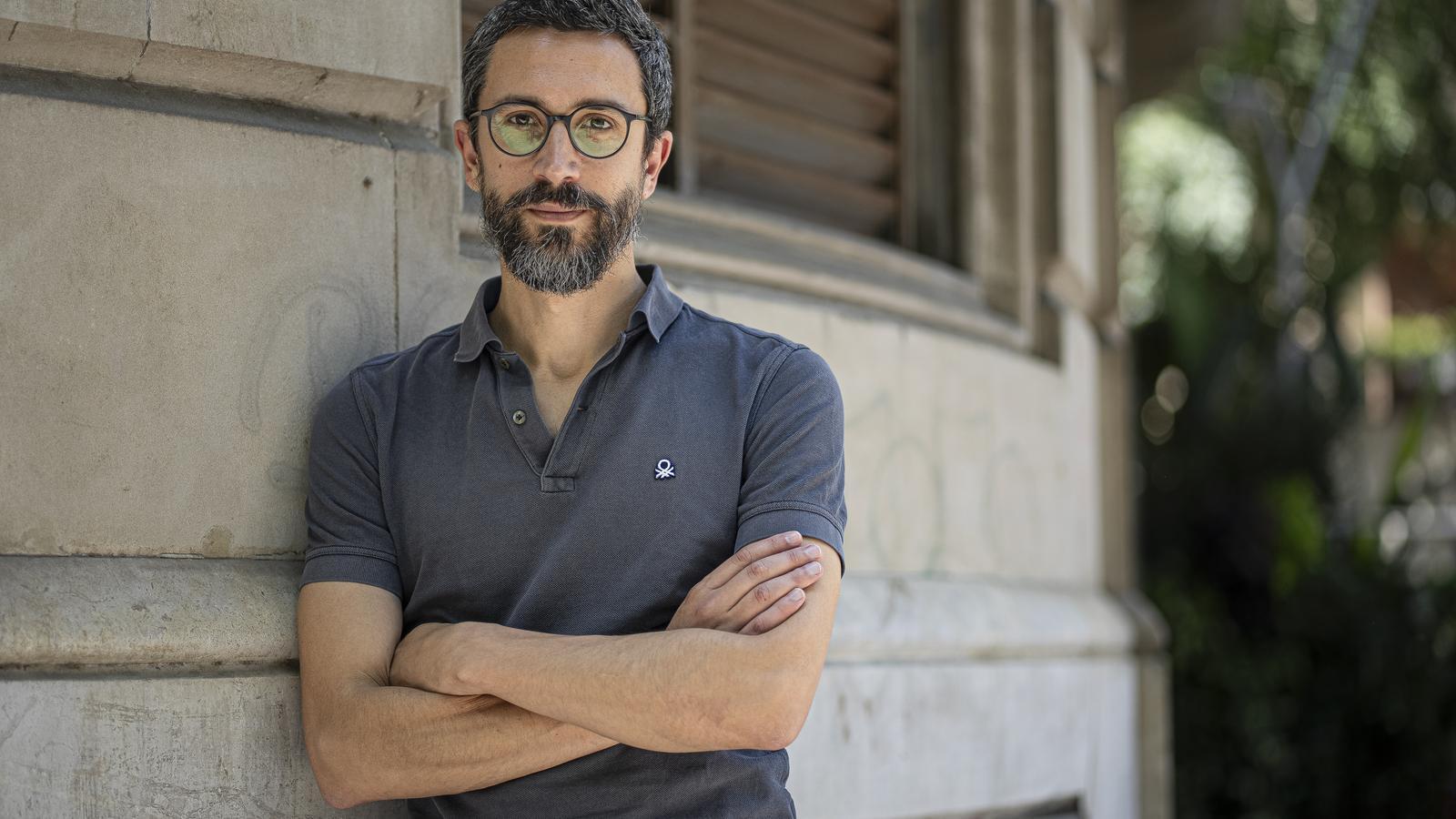Javi Rey, comic book author: "In some family situations, culture can save lives."
He has published one of the best comics of the year, 'Le llamábamos Bebeto', a moving story about the summers of children from the outskirts


"I grew up in Gavà, in the Baix Llobregat region, in the 1990s. I wanted and needed to talk about that time and that context, about summers of friendship that seemed eternal, where time passed without anything to do," explains screenwriter and cartoonist Javi Rey. Those personal and family memories have inspired one of the best comics of the year, We called him Bebeto (Norma Editorial), a story about summers spent on asphalt in the suburbs and the transition from childhood to adolescence in a humble working-class environment. Its cartoons are populated by children who spent their holidays playing soccer and who seemed destined to work in the factories in the area's industrial estates. "There weren't, like there are now, so many screens and distractions, nor so many stimuli. I think that time was the end of an era. Then, starting in 2000, the smartphones And with cell phones, teenage summers have become something else. I think my generation, those of us who were between 8 and 12 years old in the 90s, were the last to experience those summers on the street. You watched the Tour de France to see Indurain, you played soccer, you went to a nearby beach... ", recalls the author, adding: "It was a seemingly boring world, but over time you look back and realize that you experienced many things and that they were very intense weeks and months on an emotional level."
Readings and Uprooting
Despite this inspiration, the comic is not autobiographical. Furthermore, the story takes place in an invented municipality, Sant Pere, which, like Gavà, is a city with a large population originating from Spanish immigration in the 1960s and 1970s. Rey's family history is also marked by migration, which has fueled his interest as an author in the theme of displacement. "My grandparents went to Belgium to earn a living in the 1960s. My father, a Catalan, and my mother, an Andalusian, met in Brussels, and that's where my brother and I were born. My parents came to Catalonia when I was about three years old. These back-and-forth migrations are not an easy experience. Now more than ever, we must be very understanding of people who leave everything behind out of necessity. When you leave the place where you should have established your roots, it's difficult to do so wherever you go. And if you return, you've already lost them. You're like a person who doesn't belong anywhere," reflects Rey, who believes that culture is a true lifeline. In the case of the comic's protagonist, Carlos, his future will be shaped by the discovery of a book about birds. "Culture is essential. Reading allows you to nurture your curiosity and even live a life different from the one you seemed destined for. In some family situations, culture can save lives," Rey argues.
A Closing Circle
Although he enjoyed drawing as a child, he didn't think he'd end up dedicating himself to comics. Curiously, his mother's last job in Belgium was as an administrator in the studio of the legendary Peyo, the creator of the Smurfs. "She remembers that time fondly because the studio's cartoonists were very entertaining. We still have two drawings they made of her at home. My aunt inherited her job. When I began to take a serious interest in drawing, she liked it because she had seen a professional environment." Rey even sees his mother's work experience as symbolic: "I published my first comic with a publisher in Belgium. It was like a full circle. I had left there when I was very young and returned as a comic book author thanks to the efforts of my grandparents and parents."
